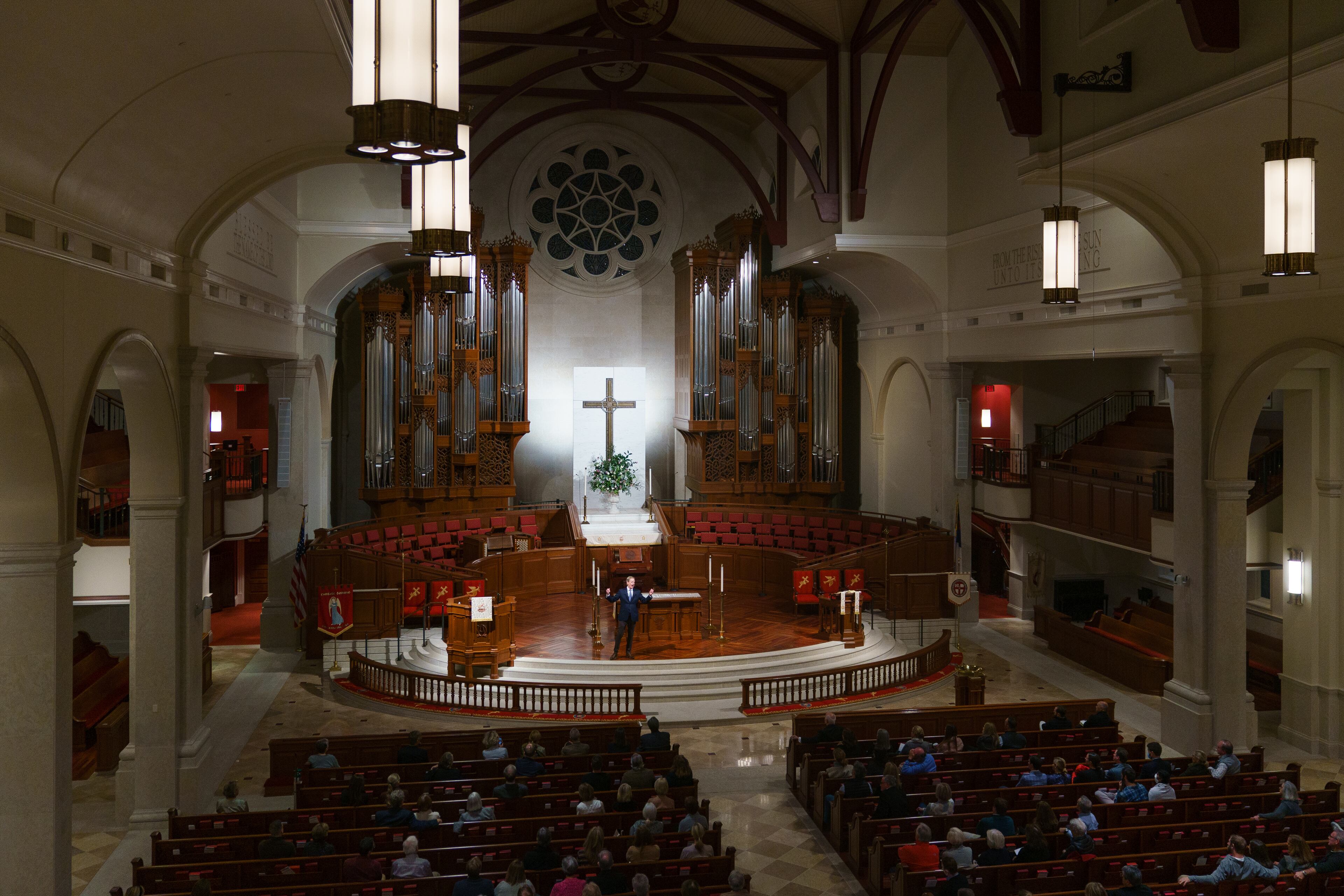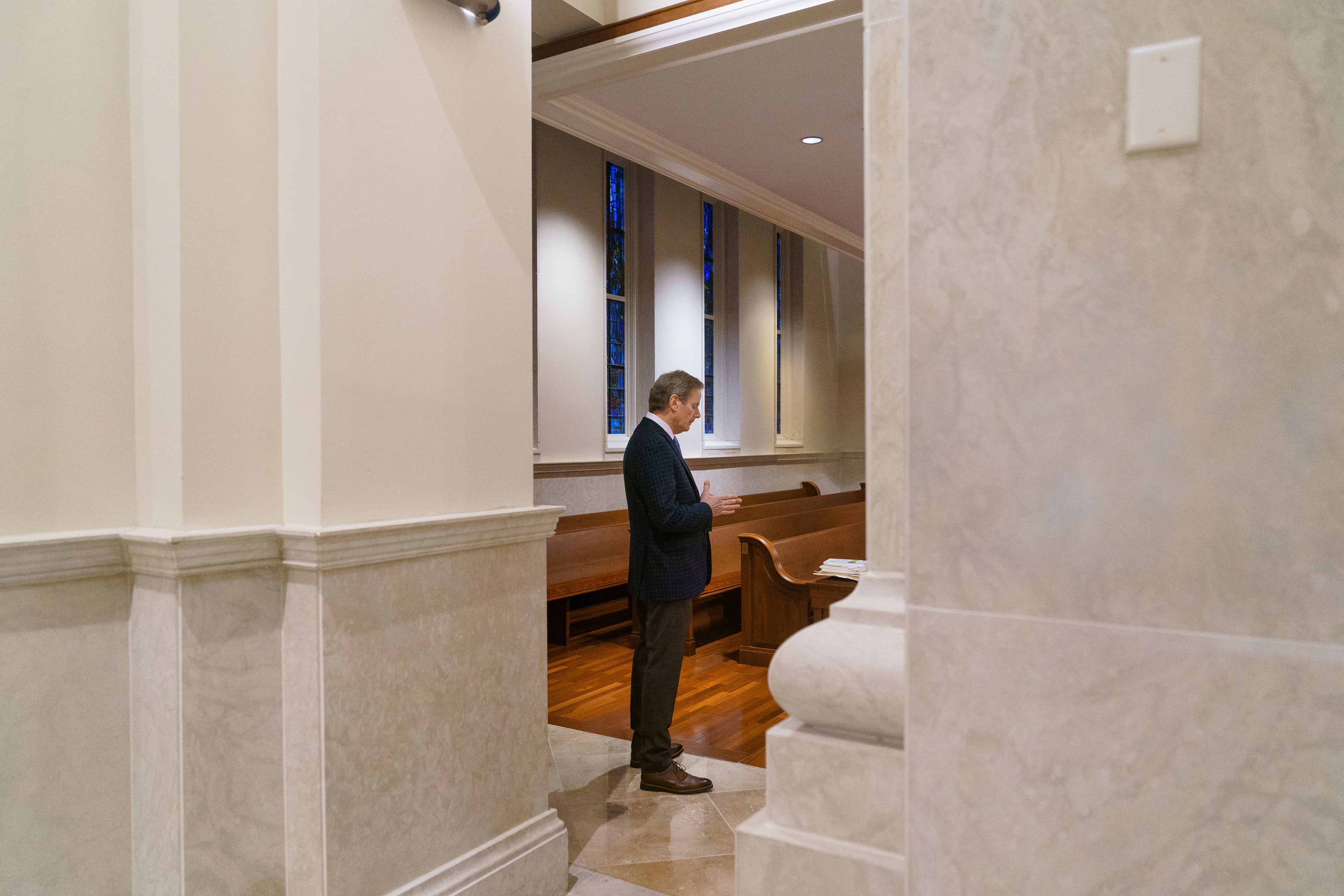Faith communities join fight against stigma surrounding addiction

William Cope Moyers heard a knock at the door that day 27 years ago. Then a command from outside the filthy Atlanta apartment where he was smoking crack. Relapsing again, he had left behind his wife, two young sons and his promising career at CNN and had not showered or eaten in four days. All because of his addiction.
“We want the white guy, just the white guy. We know he’s in there. He comes out now and there’s no trouble for anyone later,” a sheriff’s deputy outside announced.
Moyers, son of award-winning journalist Bill Moyers, was the “white guy.” He thought about hiding, as he had done before when his family came to rescue him during his drug binges. Instead, he smoked more crack. The euphoria was fleeting. When it wore off, he recognized the hopelessness of his situation. He had not gone to the crack house to get high. He went there to die.
Moyers walked outside into the rain and met the two off-duty Fulton County sheriff’s deputies hired to get him back into treatment. His father, an ordained Baptist minister who once served as President Lyndon Johnson’s press secretary, sat in a gray van parked at the curb. Though he said their memories differ, Moyers remembers his father telling him he hated him.
“I hate me, too,” Moyers responded.
Moyers recalled those bleak moments and his eventual recovery and redemption this month while reading from his bestselling memoir, “Broken,” at Peachtree Road United Methodist Church in Atlanta. He spoke as part of a nationwide movement among faith communities to fight the stigma surrounding mental illness and addiction.
Houses of worship are joining the cause amid a record increase in drug overdose deaths nationwide. More than 100,000 Americans died from overdoses between May of last year and April of this year, Centers for Disease Control and Prevention estimates show. Among the factors driving the surge are the isolation caused by the coronavirus pandemic and the spread of fentanyl, a highly dangerous opioid dealers mix with heroin.
“I lacked for nothing growing up,” Moyers told the hundreds gathered at the Atlanta church. “A lot of people think addiction is a reflection on bad morals or a lack of faith or living under a bridge or not going to college. No. I am a prime example of the fact that addiction does not discriminate because I was raised with everything good.”

Moyers is vice president of the Hazelden Betty Ford Foundation. Hazelden and Emory University have created the Addiction Alliance of Georgia, aimed at advancing addiction-related clinical care, education and research.
Moyers spoke as part of Peachtree Road’s One Lamb Initiative, which supports mental wellness. The church has scheduled a Dec. 15 discussion about “Broken.”
On a podcast he hosts, Moyers has highlighted related work by the Clinton Foundation, former President Bill Clinton’s nonprofit. Through its Empowering Faith Leaders initiative, the organization recruits and trains faith leaders to join the fight against the overdose crisis and the stigma surrounding addiction.
The foundation has expanded this initiative into Athens, Atlanta, Houston, Jacksonville and Little Rock and will add Savannah early next year. Meanwhile, 125 clergy and community leaders have been trained, including those from the Mormon, Quaker, Seventh-day Adventist, Baha’i, Catholic, Islamic, Buddhist and Jewish faiths. Some have been taught how to administer naloxone, a drug overdose prevention medication.
“Very often, when people are going through crises, they turn to their faith leaders for guidance — for hope,” said Chris Thrasher, senior director of substance use disorders and recovery at the foundation. “And what we know is that faith leaders are all too often ill-prepared. They didn’t get this education in seminary or theology school, but yet they are looked at as folks that people can go to with anything.”
The foundation has worked with Rabbi Eliyahu Schusterman, founder and director of Chabad Intown-Atlanta, a Jewish outreach center. It is collaborating with Carol Pine of Savannah, a former Hazelden board chair who with Susan Becker of Acworth operates the Interfaith Addiction and Recovery Coalition in Savannah. Imam Tariq Rashid has connected with Thrasher and is involved with similar efforts in the Atlanta region’s Muslim communities.
As he read from his memoir at the Atlanta church this month, Moyers reflected on why he decided to stop running 27 years ago.
“It was not me that lifted me off the floor of the crack house that day. It wasn’t me. What was it?” he said. “It was hope. Hope. I had given up on me, as I said. But my family, the pastor of my church, my doctor, my colleagues at CNN, my neighbors, my community — they didn’t give up on me. They hated what addiction had done to William Cope Moyers, but they continued to love me. And so I had hope.”



